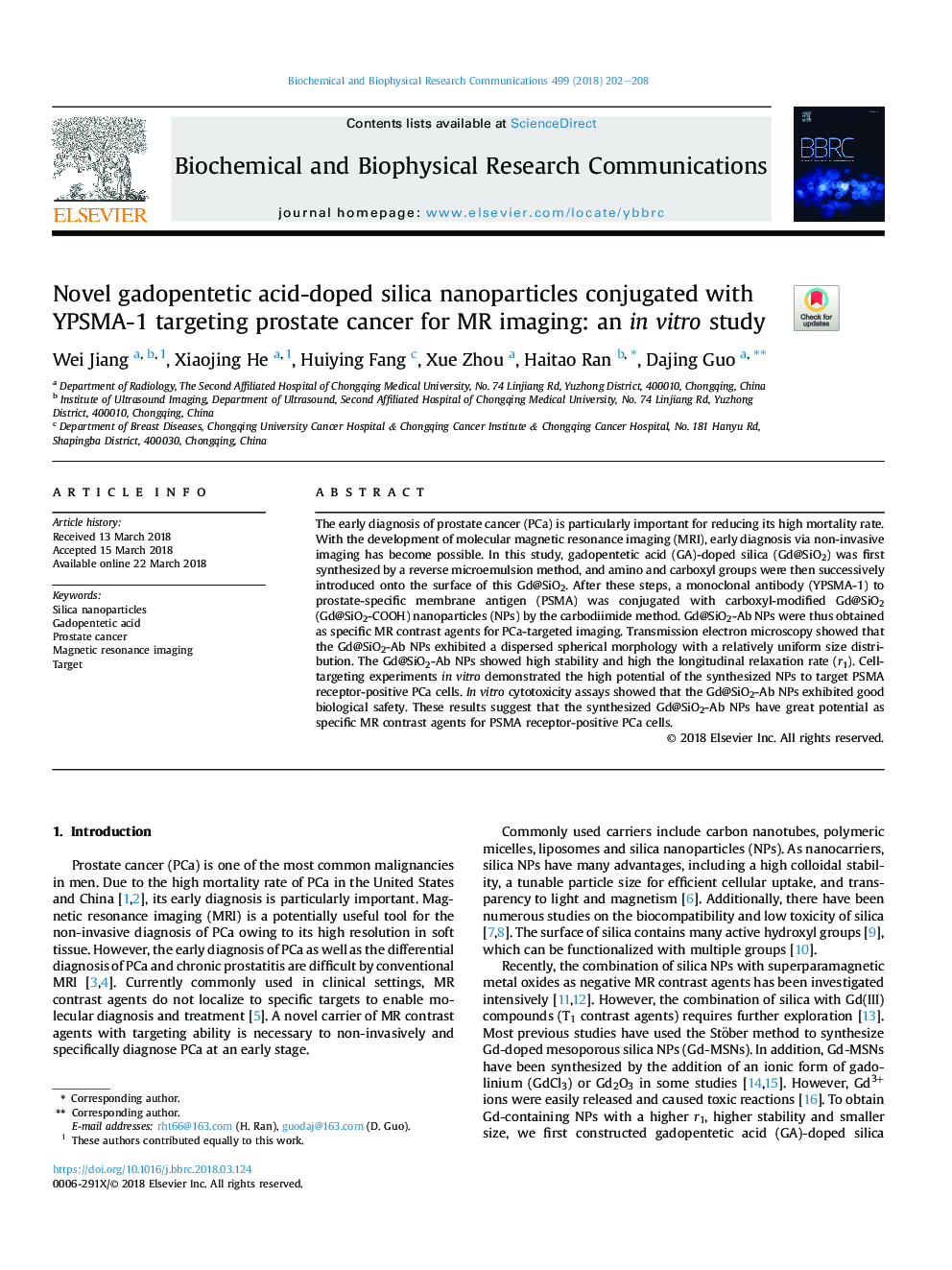| Article ID | Journal | Published Year | Pages | File Type |
|---|---|---|---|---|
| 8293130 | Biochemical and Biophysical Research Communications | 2018 | 7 Pages |
Abstract
The early diagnosis of prostate cancer (PCa) is particularly important for reducing its high mortality rate. With the development of molecular magnetic resonance imaging (MRI), early diagnosis via non-invasive imaging has become possible. In this study, gadopentetic acid (GA)-doped silica (Gd@SiO2) was first synthesized by a reverse microemulsion method, and amino and carboxyl groups were then successively introduced onto the surface of this Gd@SiO2. After these steps, a monoclonal antibody (YPSMA-1) to prostate-specific membrane antigen (PSMA) was conjugated with carboxyl-modified Gd@SiO2 (Gd@SiO2-COOH) nanoparticles (NPs) by the carbodiimide method. Gd@SiO2-Ab NPs were thus obtained as specific MR contrast agents for PCa-targeted imaging. Transmission electron microscopy showed that the Gd@SiO2-Ab NPs exhibited a dispersed spherical morphology with a relatively uniform size distribution. The Gd@SiO2-Ab NPs showed high stability and high the longitudinal relaxation rate (r1). Cell-targeting experiments in vitro demonstrated the high potential of the synthesized NPs to target PSMA receptor-positive PCa cells. In vitro cytotoxicity assays showed that the Gd@SiO2-Ab NPs exhibited good biological safety. These results suggest that the synthesized Gd@SiO2-Ab NPs have great potential as specific MR contrast agents for PSMA receptor-positive PCa cells.
Related Topics
Life Sciences
Biochemistry, Genetics and Molecular Biology
Biochemistry
Authors
Wei Jiang, Xiaojing He, Huiying Fang, Xue Zhou, Haitao Ran, Dajing Guo,
